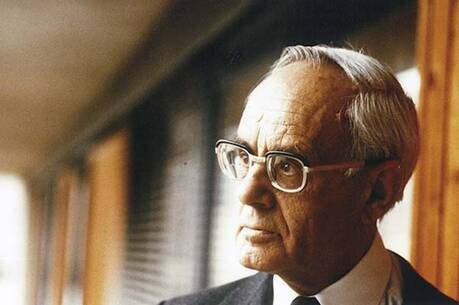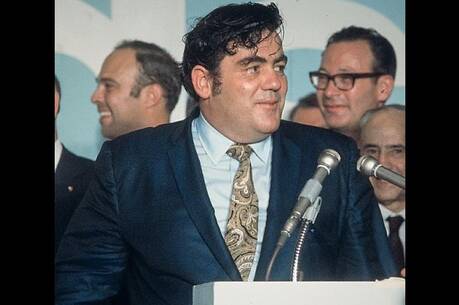Let Freedom Sing
“Hands up don’t shoot!” “Black lives matter!” “I can’t breathe!” Chants like these, accompanied by gestures of marching with hands in the air, accentuate the protests of present day multiracial activists as they decry the killing of unarmed black men, women and children by police officers in communities across the country.
Singing, older activists marched over the Edmund Pettus Bridge in Selma, Ala., to commemorate the 50th anniversary of Bloody Sunday (March 7, 1965).
Veterans of the civil rights movement wondered aloud on that bridge and asked young marchers in their midst why protests since the killing of Michael Brown and Tanisha Anderson appear generally devoid of the inspiring song leaders and community singing. Does protest song still offer release of justified anger, give expression to lament, encourage nonviolence during arrests and reverberate with demands for change? In answer, young protesters spoke of organizing on social media. Popular recording artists champion causes of freedom without acting as song leaders during meetings or protests. Activist groups plan and protest without the benefit of music.
Scholars are beginning to investigate and evaluate this recent phenomenon. The first volume of Robert Darden’s timely and readable book, Nothing but Love in God’s Water, offers a well researched, notated and indexed lens through which to focus an evaluation of protest music based on African-American sacred song.
Go Down Moses, way down in Egypt land
Tell ol’ Pharaoh to Let my people go!
Darden describes singing during backbreaking work as the first nonviolent protest of newly enslaved people. He appreciates the somewhat clumsy attempts at notating African-American spirituals by European-American musicians, educators, soldiers and missionaries, noting, however, their respect for the people and their songs, a “legitimate sacred musical expression.” Darden also recounts the enslaved peoples’ transformation of received oppressive theologies from the slave masters’ faith communities into the liberative theology and secret codes that supported individual escapes and well publicized revolts by charismatic leaders like Denmark Vesey (1822, South Carolina) and Nat Turner (1831, Virginia).
Darden quotes the lyrics of the music he describes. Readers may find themselves humming and singing along as they read:
Didn’t my Lord deliver Daniel, D’liver Daniel, d’liver Daniel.
Didn’t my Lord deliver Daniel, And why not every man?
Unfortunately, with no forewarning, Darden begins to abbreviate the quoted lyrics:
John Brown died that the slave might be free,
But his soul’s marching on.
Now has come the glorious jubilee,
When all mankind (sic) are free
Readers unfamiliar with the songs or with no sense of the song form will not understand that these words represent two separate verses, with repetition within each verse.
Singers and students of American labor union movement music will appreciate Darden’s detailed chapter on union songs. Darden focuses on ways in which original and transformed spirituals and emerging black gospel music supported union workers in recruiting new members and sustaining labor strikes.
Amid stories of segregated labor unions, Darden offers the surprising musical observation of “Negro and White Unity” in protests for workers rights among the singing union workers of Birmingham, Ala., in 1939. He quotes a “protest-oriented rewrite” of the spiritual “Joshua Fit [Fought] the Battle of Jericho:”
Black and white together, we’ll win the vote, win the vote, win the vote
(Black and white together, we’ll win the vote)
Going to build our promised land.
In this first volume, Darden’s treatment of civil rights movement music is limited to the experience before and during the Montgomery bus boycott (1955–56). He includes details of musical collaborations and protest trainings at locations including the Highlander College/ Folk School and the passage of unionized spirituals into the music of civil rights. Darden concludes the present text with an account of the use of hymns familiar to the black community in the Montgomery, Ala., bus boycott.
Participating in the first mass meeting at the Holt Street Baptist Church, Montgomery, an oppressed community made dangerous choices inspired by familiar songs, instantly repurposed into freedom songs, anthems that carried the community through 13 difficult months.
Onward, Christian soldiers, marching as to war
With the cross of Jesus going on before.
In placing the history gathered by Darden in conversation with the present protest experiences one could ask from where new protest songs might emerge. Will black sacred music continue to provide music for freedom movements? Will young protesters eventually embrace singing as inspiration for activism?
At a mass meeting in Tabernacle Baptist Church in Selma, Ala., during recent commemorations, veteran members of the Student Nonviolent Coordinating Committee. Freedom Singers sang historic songs. Older members of the crowd sang with great energy. The young choir of the church then offered their musical contribution. They chose a contemporary gospel “praise and worship” song, “You’re Amazing,” as recorded by Ricky Dillard and New G.
You’re amazing, you’re amazing, you’re amazing, so amazing!
Younger members at the meeting stood and sang with gusto. Might young people march while praising the God who inspires them and praising each other for courage to join the movement? Based on Darden’s descriptions of freedom anthem creation in Montgomery, could this indeed be an emergence of a new form of freedom song?
This article also appeared in print, under the headline “Let Freedom Sing,” in the July 20-27, 2015, issue.








